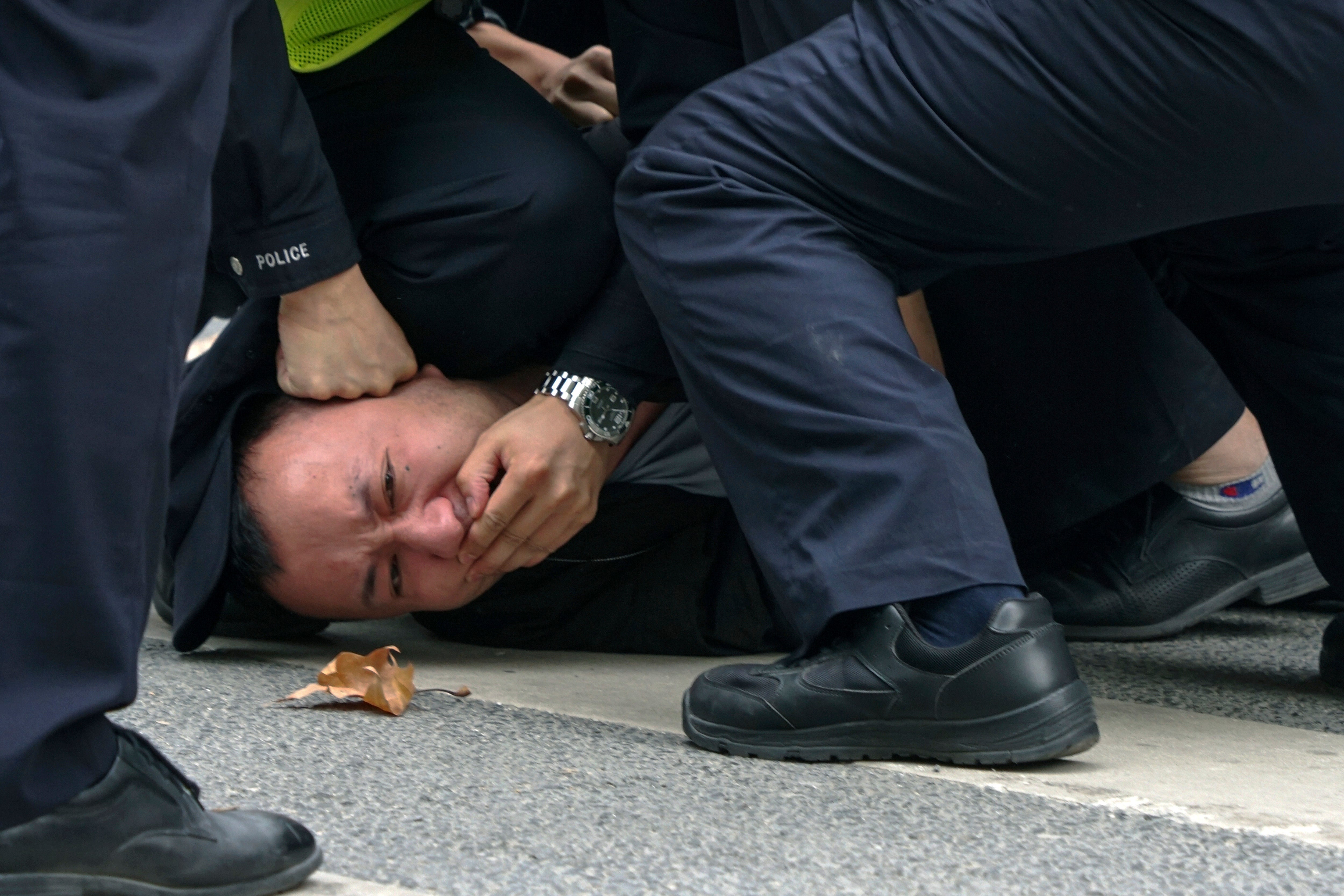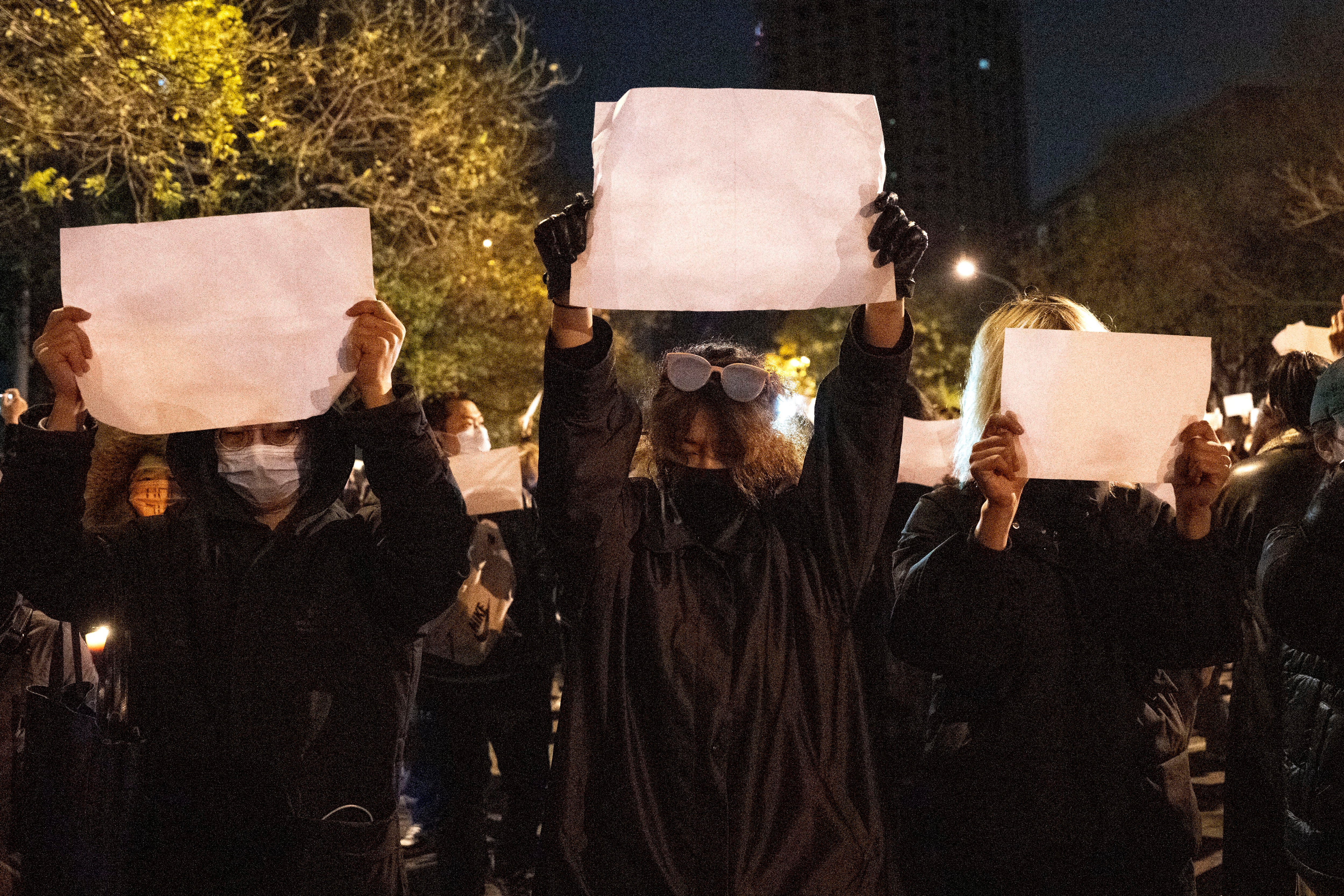China sentences filmmaker to over 3 years in jail for Covid lockdown protests documentary
The 2022 protests against Covid lockdown and subsequent crackdown on people marked a rare show of dissent in China
Your support helps us to tell the story
From reproductive rights to climate change to Big Tech, The Independent is on the ground when the story is developing. Whether it's investigating the financials of Elon Musk's pro-Trump PAC or producing our latest documentary, 'The A Word', which shines a light on the American women fighting for reproductive rights, we know how important it is to parse out the facts from the messaging.
At such a critical moment in US history, we need reporters on the ground. Your donation allows us to keep sending journalists to speak to both sides of the story.
The Independent is trusted by Americans across the entire political spectrum. And unlike many other quality news outlets, we choose not to lock Americans out of our reporting and analysis with paywalls. We believe quality journalism should be available to everyone, paid for by those who can afford it.
Your support makes all the difference.A Chinese documentary filmmaker has been sentenced to over three years in prison for producing a documentary on China’s crackdown on nationwide protests against the Covid lockdown in 2023, according to Chinese human rights news websites.
Chen Pinlin, who is known by his stage name “Plato”, was first detained on 29 November 2023 and was formally arrested on 5 January 2024 by the Shanghai police for releasing his documentary Urumqi Middle Road on the one-year anniversary of the White Paper Movement.
The White Paper Movement or Blank Paper Revolution was a series of protests that emerged in China in late 2022 during which thousands of demonstrators displayed blank sheets of paper – a symbol of censorship - to express their frustration against the country’s strict "zero-Covid" policy.
The protests were sparked by the outrage over a deadly apartment fire in Urumqi, Xinjiang, in November 2022. The incident reportedly led to deaths that many blamed on Covid lockdown measures that hindered escape and rescue efforts.
Pinlin was held in Baoshan Detention Centre in Shanghai on charges of “picking quarrels and provoking trouble” – a charge criticised as vague and elastic that authorities use to suppress dissent and maintain social control.
The Chinese human rights news website Weiquanwang said it was learned that he was sentenced to 3 years and 6 months in prison.
“Chen Pinlin, who has been arrested for more than a year, has been treated extremely inhumanely in the detention centre,” it said on Tuesday.

The sentencing was first reported by CNN which cited sources familiar with the case. It said that his sentencing came following a three-hour trial behind closed doors.
Another human rights news website Minsheng Guancha reported that the first trial of the case was heard in the Baoshan District Court of Shanghai on Monday.
Pinlin released the documentary, named Not the Foreign Force in English on YouTube and X, formerly Twitter, which were not available in China in late November 2023. The documentary showed the original videos shot on his mobile phone of the protest against the stringent lockdown.
The footage showed people chanting slogans demanding that president Xi Jinping step down.

Releasing the documentary he said: “I hope to explore why, whenever internal conflicts arise in China, foreign forces are always made the scapegoat. The answer is clear to everyone: the more the government misleads, forgets, and censors, the more we must speak up, remind others, and remember.”
“Only by remembering the ugliness can we strive toward the light. I also hope that China will one day embrace its own light and future.”
The protests were a brief flare of defiance, the most direct challenge to the Communist Party’s authority in decades.
Videos of the protest spread online and gained momentum among those unhappy with the state’s control. In the following days, thousands gathered in Shanghai and over a dozen other cities across China, holding up sheets of paper, shouting slogans and jostling with officers.
The protests were a result of frustration and anger over Mr Xi’s tough new approach to governance that included strict, large-scale lockdowns, mass testing, quarantine measures, and heavy restrictions as the virus spread globally. The lockdown was itself blamed for the number of deaths and accidents in the country.
In 2021, a bus carrying people to a Guizhou quarantine centre crashed, killing 27 in a province where Covid-related deaths since the pandemic began had been just two.
A month later, thousands of workers in an Apple iPhone factory in Zhengzhou clashed with riot police and tore down Covid barricades. There were further outbreaks of violence after reports of more deaths due to the lockdown, including a three-year-old child and a baby.
And the anger reached its peak after 10 residents in Urumqi died in a fire in an apartment building that had been under lockdown for 100 days. Officials appeared to blame residents for not doing enough to control the blaze.

Join our commenting forum
Join thought-provoking conversations, follow other Independent readers and see their replies
Comments